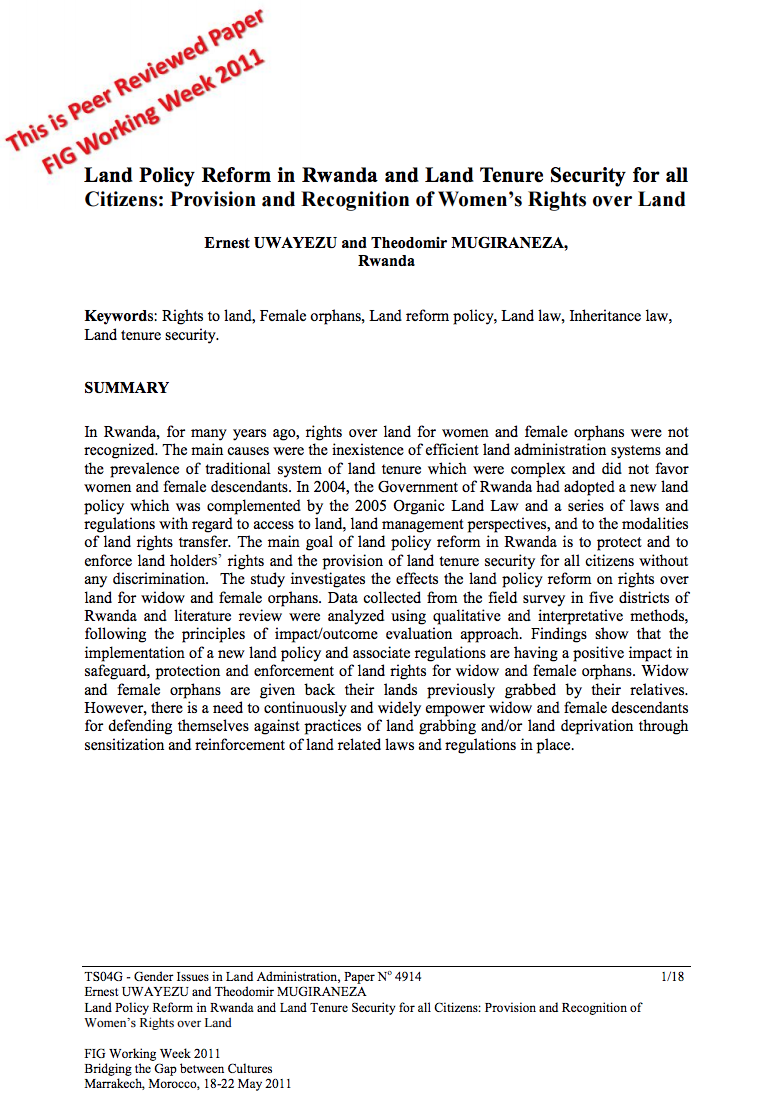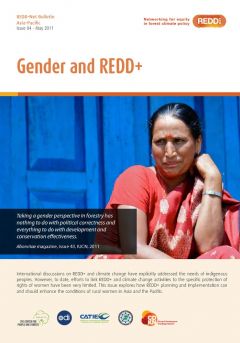The Big Picture: Land and Gender Issues in Matrilineal Mozambique
Includes the land inheritance system, the (potential) diminishing relevance of customary norms, land rights and awareness of the law, women, customary practices and participation, DUATs and land occupation, the land market. Argues that in the current context the right of women to access and administer land is being limited not by customary social rules and law but by the adverse socio-economic context which characterises the whole peasant sector.



